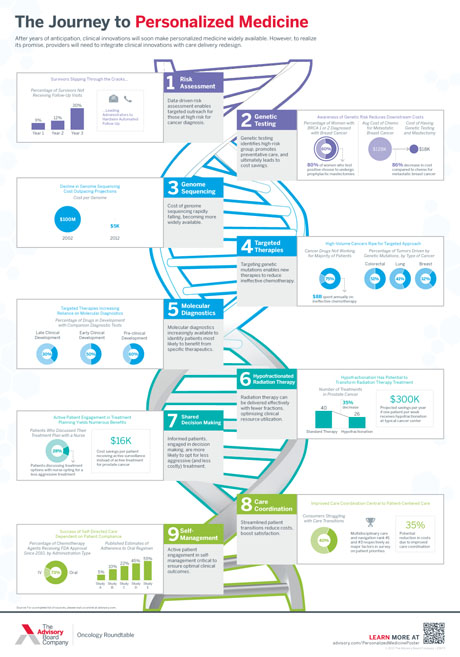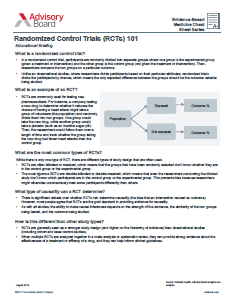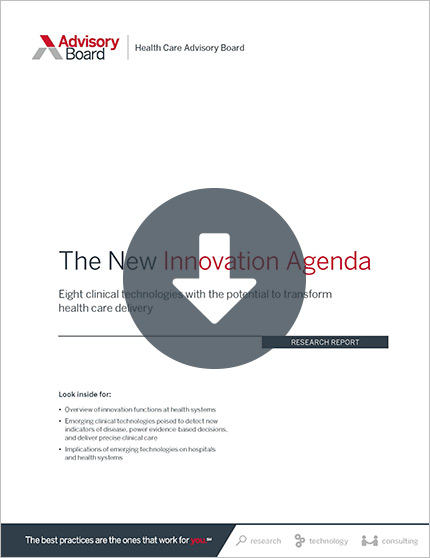Auto logout in seconds.
Continue LogoutThe scientific community is reeling following a Chinese researcher's claim that he used the gene-editing technology CRISPR to create the world's first genetically modified human babies.
Gene-editing treatments—and 7 other technologies that could transform health care
The researcher, He Jiankui, on Sunday announced he had altered the DNA of twin girls born earlier this month.
According to the Associated Press, He's claims have not been independently confirmed, and He has not yet published the results in a journal. He is scheduled to speak at the Second International Summit on Human Genome Editing convening in Hong Kong this week. STAT News reports He's announcement took the summit's organizers by surprise, and they've been "scrambling" to evaluate the claims.

Learn 9 steps you can take on the path toward personalized medicine
If true, the birth would make the twins the first genetically modified humans—a controversial scientific breakthrough that some say could present a pathway toward eliminating genetic diseases, but others say could lead to so-called "designer babies."
About the researcher's claims
He is a physics expert who attended Rice University and Stanford University before opening a lab at Southern University of Science and Technology of China in Shenzhen and launching two genetics companies.
Chinese clinical trial documents posted online this month suggest He's research used the gene-editing tool CRISPR to modify human embryos before they were implanted into women's uteruses, Technology Review reports.
In an interview with AP, He said the clinical trial aimed to create a child who would be immune from HIV. He said the trial involved seven men with HIV and seven women without HIV. Before the embryos were implanted into the women, the researchers edited the genes of the embryos to disable a gene called CCR5 that allows the HIV virus to enter human cells. According to AP, individuals whose CCR5 gene are disabled are resistant to HIV, smallpox, and cholera—but have a higher risk of contracting other viruses, including West Nile, and of dying from the flu.
He said the trial's goals were made clear to all participants and that the researchers emphasized that embryo gene editing was experimental and carried significant risks. He told AP he offered to provide insurance coverage and help plan medical follow-up for any children conceived during the trial until they reached age 18, at which point the children could decide whether to continue receiving the coverage.
In total, He told AP 16 of the 22 embryos were edited, and 11 embryos were used in six implant attempts before the twins were conceived. He said tests suggest one of the twins has both copies of her CCR5 gene disabled while the other has just one copy of CCR5 disabled, which AP reports means the latter twin could still contract HIV.
He said the Shenzhen Harmonicare Women's and Children's Hospital signed off on the project.
Research triggers backlash, multiple investigations
Research into editing human embryos is highly controversial and has divided the scientific community since 2015, when a separate team in China first edited a human embryo's genes in a laboratory, Technology Review reports. That earlier line of research did not lead to live human births.
In the United States, Congress has prohibited both FDA and NIH from funding such research.
According to The Hill, more than 100 scientists have signed a petition calling for greater oversight of gene-editing research.
The Southern University of Science and Technology of China, where He is on the faculty and has a lab, said it plans to investigate He's claims. The university said if He's claims are true, then the researcher "seriously violated academic ethics and standards." A spokesperson for He told AP that the scientist has been on leave from teaching at the university for several months.
Local authorities also are investigating the study, The Hill reports.
Rice University on Monday also said it would examine the potential involvement of the university's physics professor Michael Deem, who advised He at Rice and told AP he was involved with He's research in China.
In a statement, Rice University said, "Regardless of where it was conducted, this work as described in press reports violates scientific conduct guidelines and is inconsistent with ethical norms of the scientific community and Rice University."
Other scientists have raised questions over the approach He took to conduct the research. According to official records, He did not submit a notice of his clinical trial to the Chinese registry of clinical trials until Nov. 8—long after He had started his research, the AP reports.
George Church, a geneticist at Harvard University, argued the researcher's attempt to edit the genes to prevent HIV is "justifiable," because HIV is "a major and growing public health threat." However, Church and other researchers questioned the decision to allow the embryo with the unaltered CCR5 gene to be implanted.
Kiran Musunuru, a University of Pennsylvania gene editing expert and editor of a genetics journal, said, "In that child, there really was almost nothing to be gained in terms of protection against HIV and yet you're exposing that child to all the unknown safety risks" that come with genetic modification. Musunuru said it is "unconscionable ... an experiment on human beings that is not morally or ethically defensible," especially as disabling CCR5 genes place patients at risk of contracting less treatable diseases.
Fyodor Urnov, associate director of the Seattle-based Altius Institute for Biomedical Sciences, argued that there was no justification for the embryo experiment because researchers already are experimenting with modifying the same gene in adults with HIV. "It is a hard-to-explain foray into human germ-line genetic engineering that may overshadow in the mind of the public a decade of progress in gene editing of adults and children to treat existing disease," Urnov said (Begley, STAT News, 11/26; Regalado, MIT Technology Review, 11/25; Marchione, AP, 11/26; Stein, "Shots," NPR, 11/26; Keller, The Hill, 11/26).
Gene-editing treatments—and 7 other technologies that could transform health care
Tomorrow’s treatments offer increasing precision and customization, ideally with less toxicity and fewer side effects. Armed with a wide array of related technologies, providers could address today’s unmet demands, such as potentially overcoming organ supply shortfalls and treating chronic conditions that are merely manageable today.
In this report, we discuss the future applications of gene editing and how CRISPR gene-editing technology could cure disorders caused by single-gene mutations.
Don't miss out on the latest Advisory Board insights
Create your free account to access 1 resource, including the latest research and webinars.
Want access without creating an account?
You have 1 free members-only resource remaining this month.
1 free members-only resources remaining
1 free members-only resources remaining
You've reached your limit of free insights
Become a member to access all of Advisory Board's resources, events, and experts
Never miss out on the latest innovative health care content tailored to you.
Benefits include:
You've reached your limit of free insights
Become a member to access all of Advisory Board's resources, events, and experts
Never miss out on the latest innovative health care content tailored to you.
Benefits include:
This content is available through your Curated Research partnership with Advisory Board. Click on ‘view this resource’ to read the full piece
Email ask@advisory.com to learn more
Click on ‘Become a Member’ to learn about the benefits of a Full-Access partnership with Advisory Board
Never miss out on the latest innovative health care content tailored to you.
Benefits Include:
This is for members only. Learn more.
Click on ‘Become a Member’ to learn about the benefits of a Full-Access partnership with Advisory Board
Never miss out on the latest innovative health care content tailored to you.


